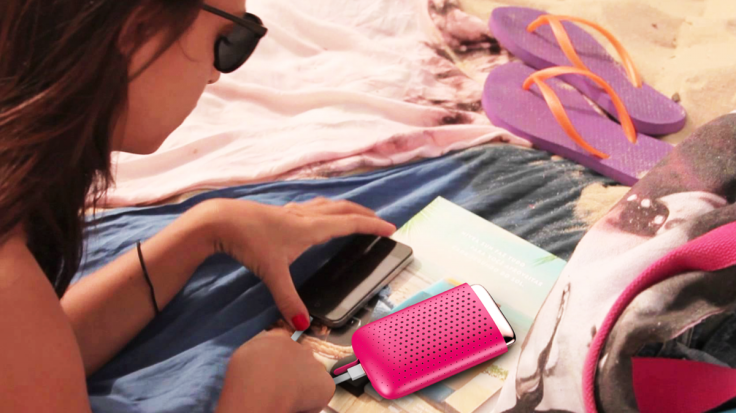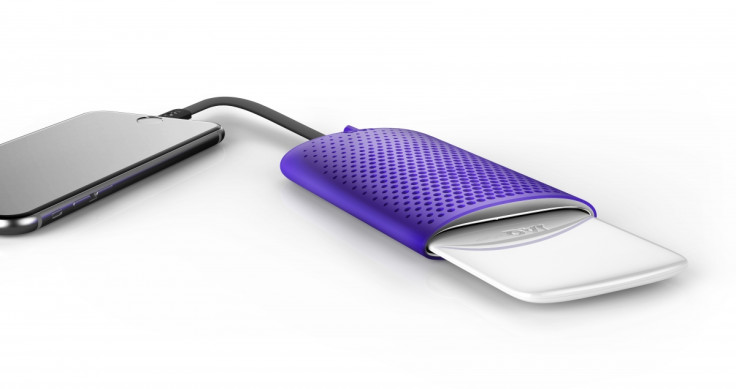JAQ: Now you can charge your smartphone using just saltwater and oxygen

Swedish startup MyFC has developed a new environmentally-friendly smartphone charger that doesn't require charging from an electrical outlet, but rather depends on chemical reactions to produce enough electricity for your smartphone battery.
The JAQ fuel cell charger consists of a colourful rubber sleeve and a credit card-sized "power card" that contains saltwater. It works by causing a separated chemical reaction between the saltwater (fuel) and oxygen (oxidant), whereby hydrogen molecules from the water enter the fuel cell at the anode and a chemical reaction strips the hydrogen molecules of their electrons.
The positively charged hydrogen ions are then able to move through the electrolyte, while the negatively charged hydrogen electrons provide current through the external circuit. Meanwhile, oxygen enters the fuel cell at the cathode, and the oxygen molecules combine with the hydrogen electrons returning from the electrical circuit, as well as the hydrogen ions that passed through the electrolyte.
The resulting reaction produces water and electricity, which the devices harnesses and uses to charge your phone via a Micro-USB cable. One power card is able to generate 1,800 mAH worth of electricity, which is almost enough to fully charge an iPhone 6S, but each power card can only be used once.

MyFC, a startup spun off from the KTH Royal Institute of Technology in Sweden in 2005, says that JAQ is the smallest pocket-sized fuel cell charger in the world.
At CES 2016, CNET was told by MyFC that prices are not yet confirmed, but each device will cost roughly around $99 (£69), while each power card will cost about $2, and the business model would encourage users to buy multipacks of power cards to get a discount.
However, the MyFC website has been updated, offering European users a contract for JAQ priced at €4.90 a month for 24 months with free power cards included if they pre-order now, although no release date has been stated.
Clearly there are good reasons for having a smartphone charger that doesn't need to be hooked up to an electrical outlet, such as relying on a new source of energy, which puts less pressure on the national grid, and it's great that it works instantly, wherever you are.
But the success of the technology will very likely depend on how visible it is to the public and how easy it is for people to get multipacks of the power cards, so tie-ins with major mobile operators and phone shops will be a must.
© Copyright IBTimes 2025. All rights reserved.






















